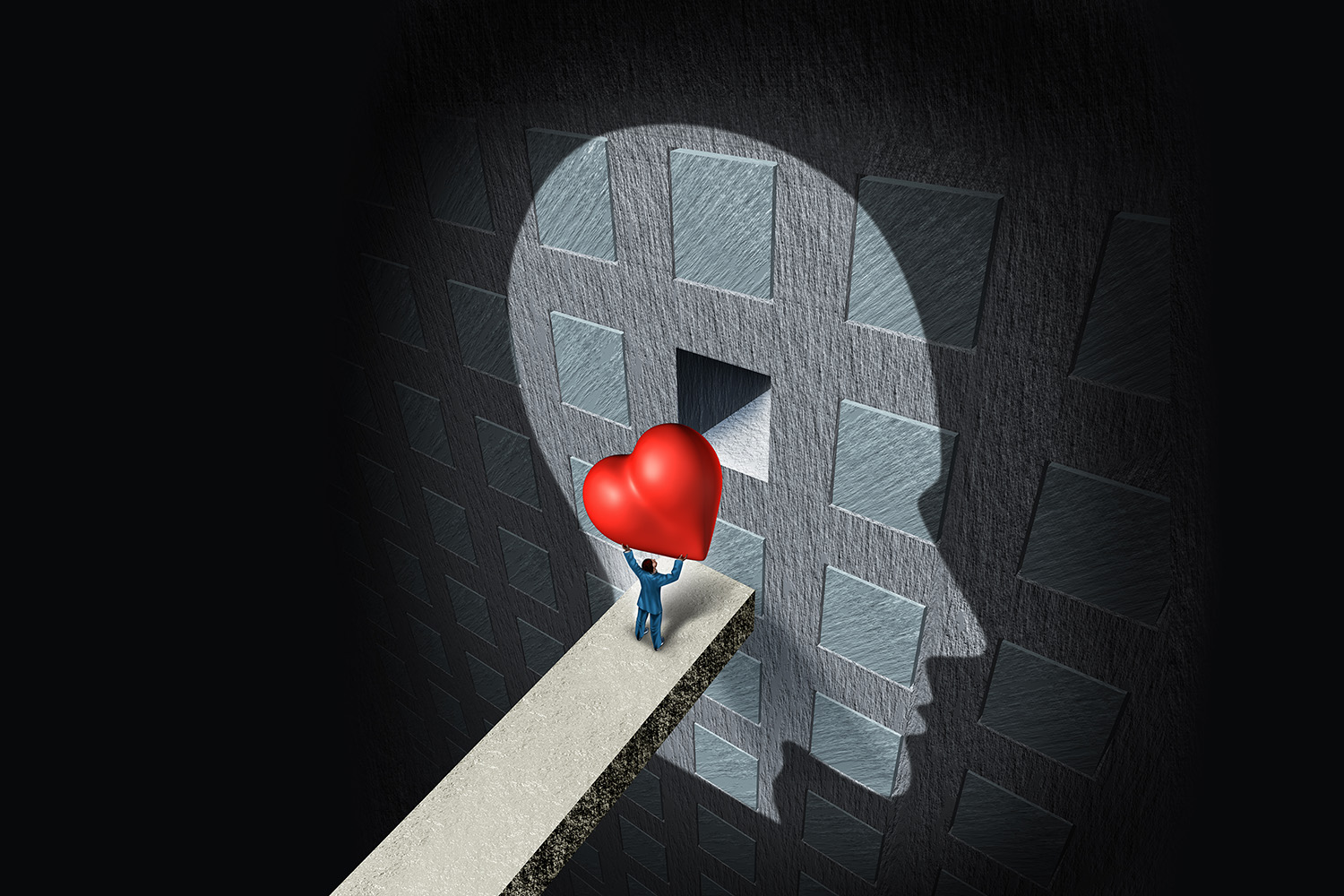Recently, at our church, we were blessed with a lecture on 12 things that can damage the frontal lobe of the brain. These, according to the presenter, include lack of water, a raised CO2 level, poor blood flow, etc…
The one that got me thinking was about sexual arousal outside of marriage as a “hit” on the frontal lobe.
This triggered a memory where you mentioned something along these lines in one of your Bible studies a while back. I have no idea which study it was, but would appreciate it if you could shed some light on this, please.
My question would be – how can sexual arousal outside a normal monogamous MARRIAGE relationship specifically damage our brains? Is the sexual act and “just fantasizing” equally destructive?
Thank you, and may God continue to bless you and those you care about.
Our brains are marvelously complex organs with the capacity to change and rewire based on experience and the choices we make. Over time our choices actually result in changing of our brain circuitry. God originally designed our brains to operate in a perfect balance with the ãfrontal lobesã in governance. But, since sin, this balance has been upset. The Bible tells us that we are tempted by our ãdesiresã or feelings (James 1:13), which corresponds to a part of our brain called the limbic system. This part of our brain is often called the ãprimitiveã brain and is the seat of lust, aggression, fear, and survival drives.
The ãfrontal lobeã is composed of various regions that are responsible for different functions. The outer prefrontal cortex, called the dorsal lateral prefrontal cortex (DLPFC), is where we reason, strategize, and plan. If you take your finger and touch the edge of your eyebrow closest to your ear and then move your finger straight up until you touch the natural hairline, the DLPFC lies beneath this point.
Beneath the DLPFC, right above the top of the eye socket, is the orbital frontal cortex (OFC), and adjacent to the OFC toward the midline behind your nose is the ventral medial prefrontal cortex (VMPFC). Current brain science implicates the OFC and VMPFC as the most likely site of the conscience. It is in the OFC and VMPFC where we experience the conviction of guilt, recognize socially inappropriate behavior, and from where the brain sends instructions to correct improper behavior.[ii][iii][iv][v]
The anterior cingulate cortex (ACC) ã the part of the prefrontal cortex right between your eyes and slightly back from your forehead ã is the neurological ãheart.ã It is in this region of the prefrontal cortex where we experience empathy, compassion, love, and where we choose the right from the wrong. The ACC is also the seat of the ãwillã the place where we choose the right from the wrong.
The DLPFC (reason) in combination with OFC and VMPFC (conscience) form the ability known as judgment. Interestingly, brain research has shown that when the VMPFC is active, the DLPFC is less active, and when the DLPFC is active, the VMPFC is less active. What this implies is that when our consciences are clear, we can reason and think more efficiently. But when we are involved in activities that violate Godãs law of love, the conscience impairs strategizing and planning. In other words, we cannot think clearly when we are guilt ridden. In order for our judgment to work best, our consciences must be clear. This can only happen when we live in harmony with the law of love.
So what happens when we engage in sexual arousal outside of marriage? We activate limbic circuits, which the PFC must evaluate and the ACC must choose to deny or act upon. If we choose to act on these impulses (including in our imagination) it results in activation of the VMPFC and OFC which cause sense of guilt, this impairs DLPFC function and we donãt reason or think as well. The increased guilt activates the amygdala, which is the fear center, and this results in increased stress hormones and inflammatory factors being released. Additionally, the firing of the amygdala results in diminishment of ACC and DLPFC activity with impairments in the ability to love altruistically and think reasonably. The person becomes more self-focused, will rationalize, distort, and blame others. This causes further activation of limbic circuits and more damage to PFC circuits.
Sexual arousal, however, is not sin in itself ã what is sin is the choice by the will (ACC) to say yes to the temptation brought about by the arousal. If the ACC instead says no and redirects the DLPFC to turn off the imagination and instead think wholesome thoughts no damage occurs, and instead the circuits of self-governance are strengthened.
Todd A. Hare, Colin F. Camerer, Antonio Rangel. Self-Control in Decision-Making Involves Modulation of the vmPFC Valuation System. Science, 1 May 2009: Vol. 324. no. 5927, pp. 646 ã 648.
[ii]Heerkeren, Hauke R. et al., An fMRI study of simple ethical decision-making. Neuroreport. 2003 July;14(9):1215-19.
[iii] Samuel M. McClure, David I. Laibson, George Loewenstein, Jonathan D. Cohen. Separate Neural Systems Value Immediate and Delayed Monetary Rewards. Science 15 October 2004: Vol. 306. no. 5695, pp. 503 ã 507.
[iv] Jorge Moll, Paul J. Eslinger, Ricardo de Oliveira-Souza. Frontopolar and Anterior Temporal Cortex Activation in a Moral Judgment Task: Preliminary functional MRI results in normal subjects. Arq. Neuro-Psiquiatr. ô vol.59ô no.3Bô SûÈo Pauloô Sept.ô 2001.
[v] Jorge Moll, Ricardo de Oliveira-Souza, Paul J. Eslinger, Ivanei E. Bramati, JanaûÙna MourûÈo-Miranda, Pedro Angelo Andreiuolo, and Luiz Pessoa. The Neural Correlates of Imaging Investigation of Basic and Moral Emotions. The Journal of Neuroscience, April 1, 2002, 22(7):2730-2736.









 using your credit or debit card (no PayPal account needed, unless you want to set up a monthly, recurring payment).
using your credit or debit card (no PayPal account needed, unless you want to set up a monthly, recurring payment). instead?
instead?